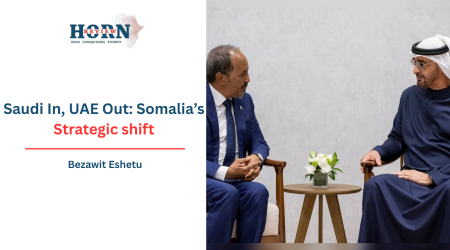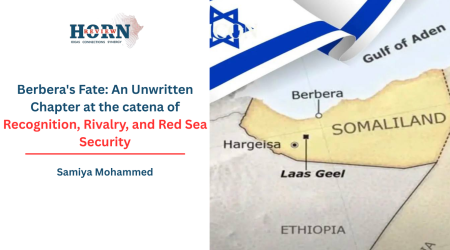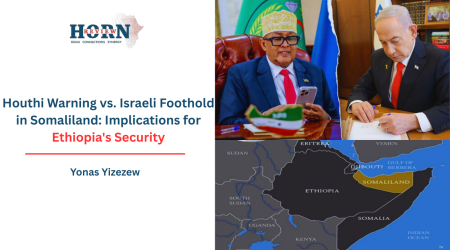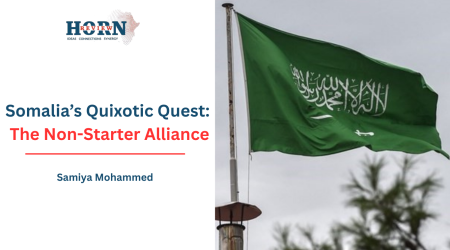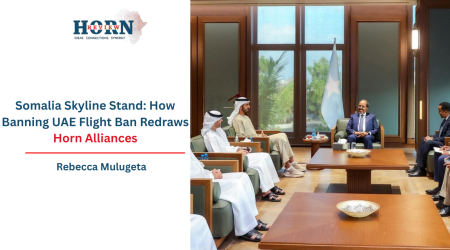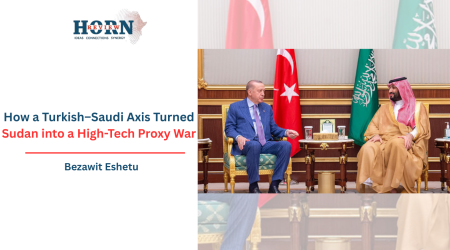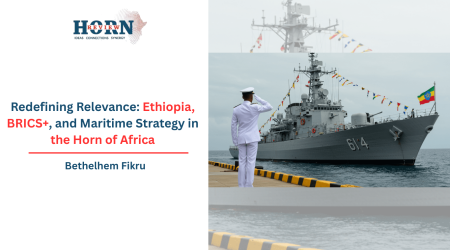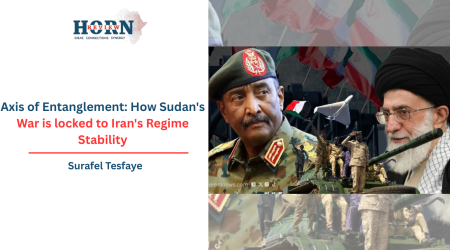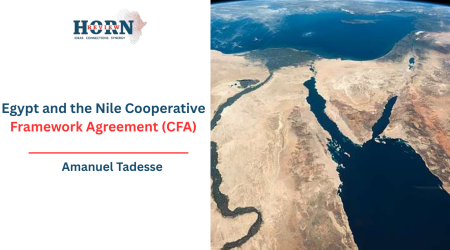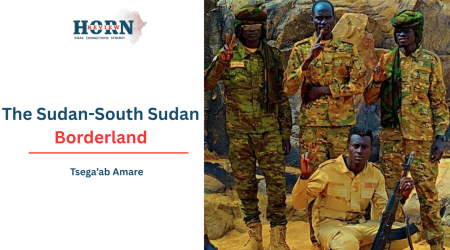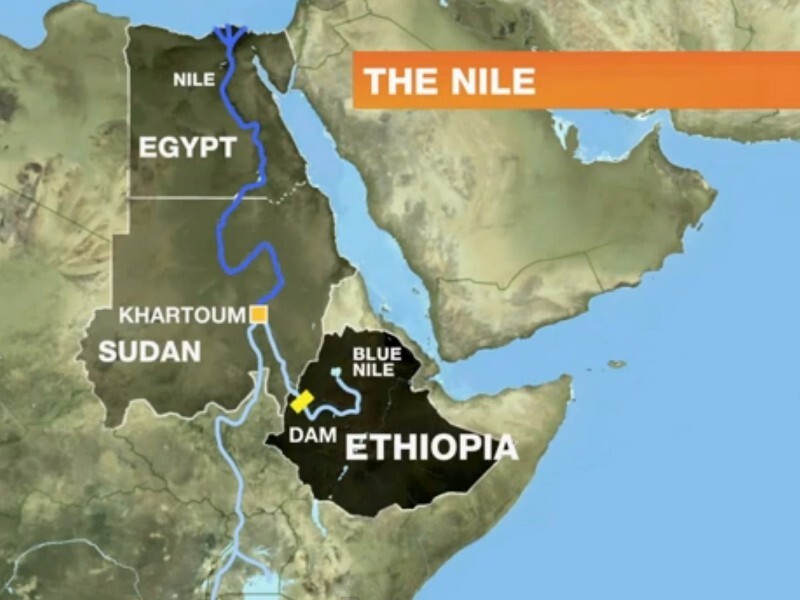
7
Jun
Egypt’s Manufactured Water Crisis: A Geopolitical Harassment of Ethiopia
The Grand Ethiopian Renaissance Dam (GERD) has been a political lightning rod in the Nile Basin, revealing a brutal contradiction in Egyptian rhetoric. While Egypt passionately claims an existential water crisis, its actions building colossal, water thirsty megaprojects in its desert are those of strategic intention, not genuine weakness. This is not merely water scarcity; it is a geopolitical risk with high stakes where Egypt appears to be equipping itself with its water stakes to acquire geopolitical leverage and intimidate Ethiopia at the expense of the very concept of sovereign development within the upstream nations.
Egypt’s wails of an imminent water disaster are hollow when weighed against its high-water, high-ambition development targets. Consider the gigantic scale of developments like the “Green River,” luxury cities, and yacht marinas sprouting in the desert. The Jirian city development recently unveiled will siphon a staggering 10 million cubic meters of Nile water daily from areas on the fertile delta. The whopping diversion will serve luxury residential units and, significantly, a 2.28 million-acre New Delta farm project.Despite claiming a dire water shortage, Egypt pours massive sums of a purportedly scarce resource into economically driven, non-essential projects.
This contradiction strongly suggests that Egypt’s “water crisis” is at least partly of its own making. By manufacturing a vision of suicidal danger, Egypt is attempting to trigger international sympathy and pressure upon Ethiopia.By leveraging to diplomatic effect its internal development choices as a pretext. The reality is that these projects, rather than being a witness to water scarcity, reflect a gross insatiable appetite for Nile water, prioritizing upscale urban development and agricultural dominance at the expense of equitable sharing of the resources.
Egypt has long asserted a historical right to the lion’s share of Nile water on the grounds of colonial treaties that did not include upstream nations like Ethiopia. This mentality has been so entrenched although it is an absolute fact that Egypt does not contribute one drop of the Nile’s flow. All waters originate from the Ethiopian highlands and other riparian states.
The GERD, a manifestation of Ethiopia’s legitimate right to utilize its natural resources for development and poverty alleviation, is challenging this long-standing, unjustified status quo head on. Ethiopia’s need for electricity and irrigation to uplift its people is natural, but Egypt’s belligerent stance indicates that any development in the upstream direction that would slightly alter its long-standing allocation is aggression. Here the harassment of Ethiopia is visible: Egypt’s intransigent opposition to the GERD, even as it promises minimal downstream effects, seems to be an effort to perpetuate a historic hegemony that is no longer sustainable in a world where sovereign states have a right to develop.
The crux of Egypt’s strategy is the use of water infrastructure as a strategic tool, not just for its survival, but for regional domination. By pumping billions of dollars into schemes that use massive amounts of Nile water, Egypt creates a self-fulfilling cycle of dependency that it can subsequently use politically. The new Delta farm project and Jirian city are not just about increasing land prices or filling state treasuries; they are about affirming Egypt’s right to an increasingly larger share of Nile water and thereby constraining the development aspirations of the upstream countries.
Such a strategy establishes an internal crisis that can be utilized as political leverage against Ethiopia. The “water scarcity” story is hence an extremely convenient diplomatic tool, allowing Egypt to demand concessions regarding the operating and filling of the GERD and de facto determine Ethiopia’s course of development. It is an unabashed expression of power politics, with water being the mere vehicle only for domination and exercising influence.
The Nile dispute is well beyond being a mere technical dispute over the movement of water. It is a fundamental dispute over power, national sovereignty, and the future structure of the African order. Ethiopia, being a major contributor to the waters of the Nile and a rapidly developing nation, is exercising its right to define itself and employ its resources. Egypt, meanwhile, is fighting to hold on to an historic ascendancy that is ever more under challenge from the re-emergence of its upstream neighbors.
The African water politics realignments of the region are undeniable. The era of a single downstream nation holding sway over all others is ending. Ethiopia and other upstream nations are calling for a more democratic and cooperative management system for the Nile Basin. Egypt’s assertion of historical rights and its use of “manufactured vulnerability” to bully Ethiopia only calls attention to the long-standing power relationships involved. The GERD is a sign of Ethiopia’s resolve to redefine its role in the basin, moving away from being an excluded source to becoming a sovereign cooperator in the shared management of the Nile.
Egypt’s water crisis manufactured emergency, fueled by lavish desert schemes, is the naked effort to maintain outdated Nile primacy and to bully Ethiopia. This one-sided, unsustainable strategy will fail in the end. The colonial days of water claims are over; shared equity is the future.
For Ethiopia, the policy is clear: go ahead with GERD’s completion, asserting sovereign development rights while openly sharing. Above all, strengthen partnerships with upstream nations, collectively insisting on a fair, cooperative agenda. Expose Egypt’s contradicting conducts in the international arena.Ethiopia’s cohesiveness and resolve are its best antidotes to this geopolitical coercion, ensuring the Nile remains secure for all Ethiopians.
By Bethelhem Fikru,Researcher,Horn Review

